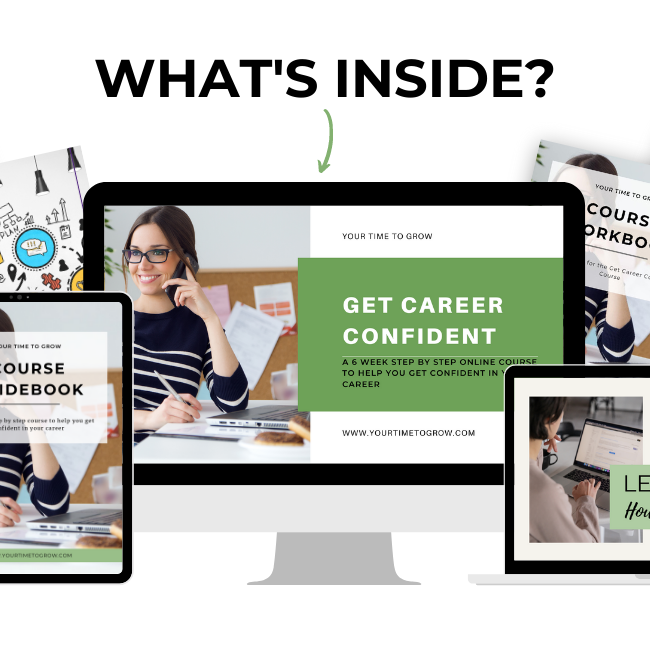You’ve updated your CV, applied, got through the interview and accepted the offer. Now you're in (or maybe about to start) your new job. You might be feeling nervous and excited at the same time, not unlike starting at a new school!
With a new job, there's lots of change. From a new commute, colleagues and new expectations - some of which you might be adding yourself.
You might be thinking you have to fit in quickly, but I'm not so sure about that. In my experience, it can take up to 12-18 months to feel confident in your role.
That's not to say you won't adapt to your commute, team or culture sooner, you almost certainly will, but it's also ok if you don't.
Often, what takes longer is feeling like you know what you're doing and managing your own expectations of how you should be feeling at any point during those first few weeks, months and years.
Before you start your new role
There are some things you can do before you start the new role that will help you settle in more quickly.
- It Is OK to contact your new boss to ask if they would like you to do any prep work before you start, or if they would like to meet you for a coffee. Make sure that you know what your new boss is expecting from you in the first weeks and months.
- Look at their social media account before joining, as well as their Glassdoor profile as this can be a good indication of what the company will be like. You could also contact people through your network who know the company.
First six months in a new job
The first 6 months of a new role can feel exhilarating and exciting. Perhaps you can't believe your luck that you were the one who landed the job. Congratulations, you did! In these early days and weeks, it can be an opportunity to show your true self - this is a new start, where in most cases, no one knows you. You don’t need to change yourself, remember that you were hired as they thought you’d fit into the company culture. It takes all sorts of personalities to make up a company culture, and you are a great fit in your own unique way.
When you start in a new role, there's a lot to take in and learn. You might feel like the new kid on the block. That's ok too. It can feel overwhelming to go from knowing everyone and everything, to a place where you are the new person asking all the questions.
Lots of clients ask me what they should focus on and I usually point them in the direction of the ‘Get Ahead in your New Job’ book by John Lees and encourage them to listen and observe for that time. Especially if you are in a position of leadership.
Understanding the day to day aspects of your role, the bigger picture of the business and the culture is the main goal in these first few months. Remember to start with a positive attitude and try to integrate yourself into the new environment. Talk to people, remember their names and ask questions. Be patient, and remember that truly fitting in at a new organisation takes time.
Even though it can feel uncomfortable to feel like you're constantly asking questions, this is the only way to make sure you cover all the basics. Remember that people will expect you to ask a lot of questions, and it doesn’t matter that you ask the same question more than once.
It is normal to miss your old job the first few weeks, even if you didn’t like it that much in the end. We all have moments when we step out of our comfort zone that we want to go back to the old and familiar. Remind yourself why you left your previous job and try not to compare the two.
6-12 months in a new role
By the time you reach your six months in your role, you'll have already started building relationships at work. From peers and project teams to your new boss. Rapport and trust take time to build. Being yourself means you will be able to build genuine relationships with your new colleagues. Stay true to yourself and you will feel like part of the team over time.
Depending on how long you were in your last role (or if you were on a career break) you may not be quite used to the way things are done. Remember that you might be used to doing things differently, they may even have been better in your eyes but it's important to remember to approach these relationships with an open mind and willingness to learn.
It is in this period of time I find clients are frustrated that they're not further along and don't know it all yet and have to keep checking small details and/or missing bits. It's completely normal. It takes time to get to know the finer points without thinking about it. You are moving between the consciously incompetent and consciously competent stages of the conscious competence ladder - this is the time to be kind to yourself and to focus on the things you can do.
If you’re feeling like you should be doing better you might start thinking that this isn't the right place for you. You might want to find a new job but it's worth giving yourself another 6-months to relax into it and decide whether it really isn’t the right place or if you’re giving yourself a hard time. If it's a toxic environment and it's not the right culture for you you're likely to know that fairly quickly - in which case, it’s OK to move on.
12-18 months in a new role
These final months are all about those moments where your colleague says to you "hey can you do x?" and you do it. You don't have to ask anybody; you realise that it has all gone in and you've settled in. Maybe there are new people coming in and you don't feel like the new person anymore.
Now would be a good time to assess your career development goals. Have you achieved what you hoped for in this new role? If not, what needs to change? You might be feeling ready for a new challenge, in which case speak to your boss and see what opportunities are available.
Many people feel that they can’t leave a role after such a short time but if you have given all you can and received all you need, the next step might be looking for another role - internally or externally.
step by step course
Get Career Confident
Applying for a new job can feel hard at the best of times, but it's even harder when you feel like you have forgotten all of your skills and you have no idea or confidence about how to start.
The Get Career Confident course allows you to build confidence in your skills and abilities, especially if you’re feeling overwhelmed at the thought of moving roles, getting a new job and/or setting career goals.


